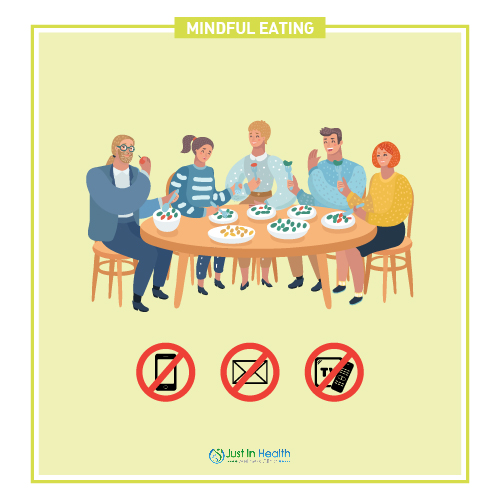

By Dr. Justin Marchegiani

It seems like trending diets change as fast as style trends, and with so many fad diets out there, it can be hard to know which ones are all hype and which ones are legit. Diets are rarely a sustainable long term option. The “diets” I recommend to my patients are ways of eating that promote a healthy and balanced lifestyle that can be sustained without feeling like you’re missing out.
The hottest diet right now is “Intuitive Eating.” There are many great things about intuitive eating, which is a mind-body health approach with 10 founding principles. This way of eating depends upon listening to your body to meet your physical and psychological needs. Honing into the messages your body gives you–eating when you’re hungry and stopping when you’re full–is something we rarely do these days in the age of instant foods. Additionally, intuitive eating has no ‘right’ or ‘wrong,’ only what feels right to you. This reduces diet-related anxiety and stress, which is a major win! Stressing about what you eat can throw your hormones out of whack and ultimately, in some cases, can do more harm that the diet does good.
Intuitive eating has many pros: it requires you to learn to listen to your body to respect its needs, and takes away the guilt and stress of dieting. However, a big part of intuitive eating is that there is no counting of calories, carbs, points, or macros, and no foods are off limits. While the lack of restrictions are enticing and a great way of reducing confusion over what is “allowed” or not, there are better and worse food choices.
Technically, an intuitive eater could choose to eat donuts, fast food, and alcohol in a day, but filling up on a carb-heavy diet of sugar, alcohol, gluten, chemical additives, food coloring, and processed foods wouldn’t be doing their body any good in the long term. However, there is a way to take the best parts of intuitive eating and mix them with a healthy diet. I like to call this “mindful eating.”

Mindful eating is being aware of the entire eating experience, from the food you eat to the process of eating. Like intuitive eating, mindful eating is not a diet and has no rules of what you can or cannot eat.
Mindful eating can change and grow with you and your needs. When you eat mindfully, you are choosing foods that feed and nourish you, while also employing intuitive eating concepts of listening to your body and following hunger cues. When you eat mindfully, you eat with purpose. The foods you chose are mindfully chosen, and even the act of eating becomes a more mindful experience. The phone goes away–work emails or social media can wait– and your attention turns to the nourishing food in front of you.
While the two ways of eating share a lot of experiences, an important aspect of mindful eating is though there is no judgement, the foods you eat are chosen purposefully to optimize your health and wellbeing. This may mean eating lower carb (like the keto diet) or a paleo-based diet, and it may mean avoiding certain foods that you have an allergy or intolerance to. Of course, I recommend choosing high quality foods (like organic produce, grass-fed meat, and pastured eggs), as these are important aspects of picking the food that help you become as healthy and happy as you can be!
Learn which foods work best for you. If you are suffering from health issues, you may want to start off with an elimination diet to learn your triggers. An elimination diet requires a lot of mindfulness as you have to listen to your body to learn which foods cause a reaction!
Mindful eating is easy–you can start today! When you are cooking, ask yourself if the foods you are using are serving you or hurting you. By choosing foods that will make you feel great physically, and you will feel good mentally! When you sit down to eat, lose the distractions. Turn off the TV, put your phone on silent, and really enjoy the experience of eating.
Click here to work with a doctor to find your personal mindful eating plan!
References:
https://www.intuitiveeating.org/
https://www.ncbi.nlm.nih.gov/pmc/articles/PMC6360478/
https://www.ncbi.nlm.nih.gov/pmc/articles/PMC6102380/
https://www.ncbi.nlm.nih.gov/pmc/articles/PMC5556586/